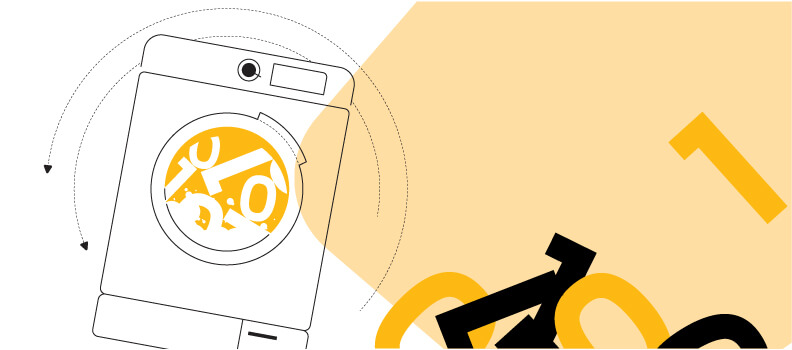Are you one of 45% of marketers that don’t validate your data for quality and accuracy?
Or maybe you’re one of the 62% of marketers using inaccurate or incomplete information.
Businesses will ultimately run into “dirty data” within their customer data files as weeks, months, and years press on. But in leaving this information unchecked, businesses can cost themselves thousands or millions of dollars every single year.
So, how do businesses fix this problem?
Data hygiene is a growing trend among B2B and B2C companies.
What is data hygiene?
Also referred to as “data cleansing,” “data enhancement,” “database hygiene,” and “data enrichment” it’s a way to keep your data healthy, freeing it from inaccurate information or duplicate leads. Database hygiene also lets you add missing information to your customer data file.

While bad data may seem like a small problem, it can have severe consequences to your business over time. Here are only a few results that can come from bad data:
- Misdelivered or inaccurate direct mail
- Increased unsubscribes
- Reduced customer happiness
- Decreased leads in pipeline
- Higher rates of failure in marketing campaigns
- Escalated production costs
- Inaccurate performance metrics

On the other hand, some ways that good customer data files prove helpful to businesses include the abilities to:
- Segment customers into meaningful categories
- Improve marketing effectiveness
- Identify patterns of behavior among leads and customers
- Properly evaluate KPIs
- Enhance social media efforts
- Increase revenue
Taking control of your data gives you the freedom to not only save time and money, but also provide your leads with a more personalized experience.
Best of all, a highly personalized buyers journey has been proven to result in more sales, helping your business grow.
Customer data file cleaning process
Of course, data hygiene isn’t something you only do once. In order to keep your data on track, it’s important to create a process that will help you manage data throughout the lifetime of your business.
But what should that process look like? When you’re new to data hygiene, coming up with a system can feel daunting. Here are 5 best practices to follow as you get started.

Establish a CRM
Having a place to store the data you collect is paramount to keeping your data clean. For most businesses, this means determining what CRM is the best fit.
CRM or Customer Relationship Management is a way to store information about all of your customers. A well-established CRM software program is pivotal to helping you manage your leads in an efficient manner.
A CRM will keep your lead-related data in one place, allowing you to track things like how frequently a lead has made a purchase or their proximity to your nearest brick and mortar store.

Identify customer data file expectations
What do you want from your data? What is the point of collecting it? The answer to these questions will vary from business to business, but digging into the response is key to identifying your company’s data expectations.
Once you understand the expectations being put upon your data, you can establish KPIs (key performance indicators) and establish whether or not those expectations are being met. Your KPIs should tie back to the six following characteristics of data quality:
-
- Completeness: Is all data present within a specific dataset?
KPI example: % of data where the email address is missing.
-
- Accuracy: Is your data correct?
KPI example: % of data with a returned direct mail piece in last 6 months.
-
- Timeliness: Is your data accurate at the time it’s being used?
KPI example: % of leads who have moved within the last month.
-
- Consistency: Do completed datasets have the same information?
KPI example: % of lead phone numbers that differ across systems or databases.
-
- Validity: How well does your data coordinate?
KPI example: % of birthdays formatted the same way (mm/dd/yyyy vs dd/mm/yy).
-
- Integrity: How was your data collected?
KPI example: % of data collected from public records.

Standardize data entry practices
Chances are good that you have more than one person entering lead information for your business into a CRM.
Some people are more detail oriented than others.
And different people may collect different information about a lead.
But when you’re looking to maintain an accurate customer data file, it’s important to standardize your data entry process across departments. Mistakes may still happen now and again. But standardization will help you work toward meeting the characteristics of data quality discussed previously, which is important for businesses wanting to increase their revenue.

Utilize an enhancement service
Cleansing the data you already have is as important as setting rules for how new data will be collected and stored.
While you could review your current customer records by hand, it is a lot easier (and faster) to use data enhancement services. There are a few ways you can utilize these services, depending on the needs of your business.
List update: Add or update information that is missing from your files such as full name, phone number, demographics or firmographics, or ZIP Code.
Postal Processing: Ensure customer data files contain accurate, deliverable mailing addresses.
Data Suppression: Hide prospects or customers that may be deceased, incarcerated, or indicated they don’t want to be on certain call or mailing lists.
Merge/Purge: Find data duplicates and remove any unwanted data from your existing lists.

Perform ongoing maintenance
Keep in mind that setting good practices alone for collecting data won’t keep bad data from popping up in your customer data file. There are many reasons why data may change over time, including:
- Birth
- Marriage or divorce
- Moving
- Opt-outs
- Bankruptcy filings or closings
- Deceased or incarcerated
That’s why it’s important to partner with a big data company that can help you maintain your lists with ongoing data cleaning services performed every six to twelve months.
Here’s what you should look for in a big data company partner:
Data Quality: Accurate information is the foundation laid by industry-leading data companies. A key component to the growth of companies that purchase information, reputable data companies invest heavily in quality data to ensure their records are up-to-date.
Company Standards: Privacy policies exist to protect consumers. Partner with a data company dedicated to transparency and ethics regarding the collection of information.
Satisfaction Guarantee: Data is constantly changing. So, no matter what big data company you purchase information from, you’ll run into undeliverable addresses, out-of-date contact names and disconnected phone numbers. Reputable data providers, in acknowledgement of this, offer ways to make it right—usually a satisfaction guarantee— with their customers.
Keeping your customer data files clean is paramount to the growth of your business. At Salesgenie, we maintain both Business and Consumer databases that are complete, accurate, timely, consistent, and valid.
Most importantly, all data is collected with integrity, utilizing a variety of publicly available sources, and confirmed by over 300 active data researchers who make millions of verification calls annually.
Whether you have questions about which data enhancement service is best for your business or you’re ready to get started, Salesgenie can help. Don’t hesitate to reach out—a trusted marketing representative is standing by, awaiting your call.






